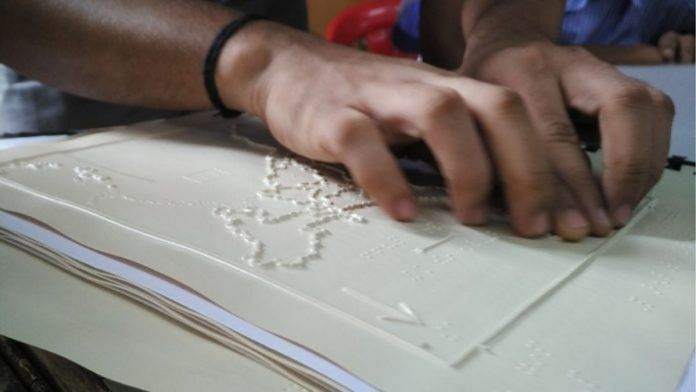New Delhi: To fulfil the goal of inclusive education, the Centre on Tuesday released the new guidelines for the development of e-Content for children with disabilities (CwDs), the Ministry of Education said on Tuesday.
According to an official release, Union Education Minister Ramesh Pokhriyal approved the release of the guidelines which has been initiated under the comprehensive initiative, PM e-VIDYA (launched on May 17 202) to unify all efforts related to digital/online/on-air education. Under the new guidelines, e-Content for CwDs should be developed based on the four principles namely– perceivable, operable, understandable and robust.
“e-Content including text, tables, diagrams, visuals, audios, videos etc. should comply with accessibility standards: national standards (GIGW 2.0) and international standards (WCAG 2.1, E-Pub, DAISY etc). Distribution platforms on which content is uploaded (e.g. DIKSHA) and Reading platforms/devices on which content is accessed and interacted (e.g. e-pathshala) must comply with technical standards,” the Ministry said.
The Centre recommended reasonable pedagogical accommodations to meet the specific needs of CwDs. The Committee has also recommended that in a phased manner textbooks may be adapted into Accessible Digital Textbooks (ADTs).
“The content of ADTs should be provided in multiple formats (text, audio, video, sign language etc) with turn-on and turn-off features. Further, ADTs should provide flexibility to CwDs to respond to its content/exercises in multiple ways. The detailed guidelines for developing ADTs along with existing international and national experience, in the development of prototypes including the recent NCERT’s experience: Barkha: A Reading Series for All (in print and digital forms), Accessible Textbooks for All and UNICEF’s “Accessible Digital Textbooks using Universal Design for Learning ( for Learners with and without Disabilities) have been presented in Section 5 of the report,” the guidelines said.
In addition to ADTs, the Committee has recommended specific guidelines for the development of supplementary e-Content as per 21 disabilities specified in the RPWD Act 2016 for students having intellectual and developmental disabilities, multiple disabilities, autism spectrum disorders, specific learning disabilities, blindness, low vision, deafness and hard of hearing and others.
A summary of the recommendations has been presented in the report for sharing widely with content creators, content designers, developers, publishers.
“These guidelines will initiate the creation of high-quality content for digital education to children with special needs. They are dynamic by nature, to be improved based on experience and the advent of better technology,” the release added.
Also read: It’s Tamil Nadu and Kerala again, plus Punjab, that top Modi govt’s school grading index



